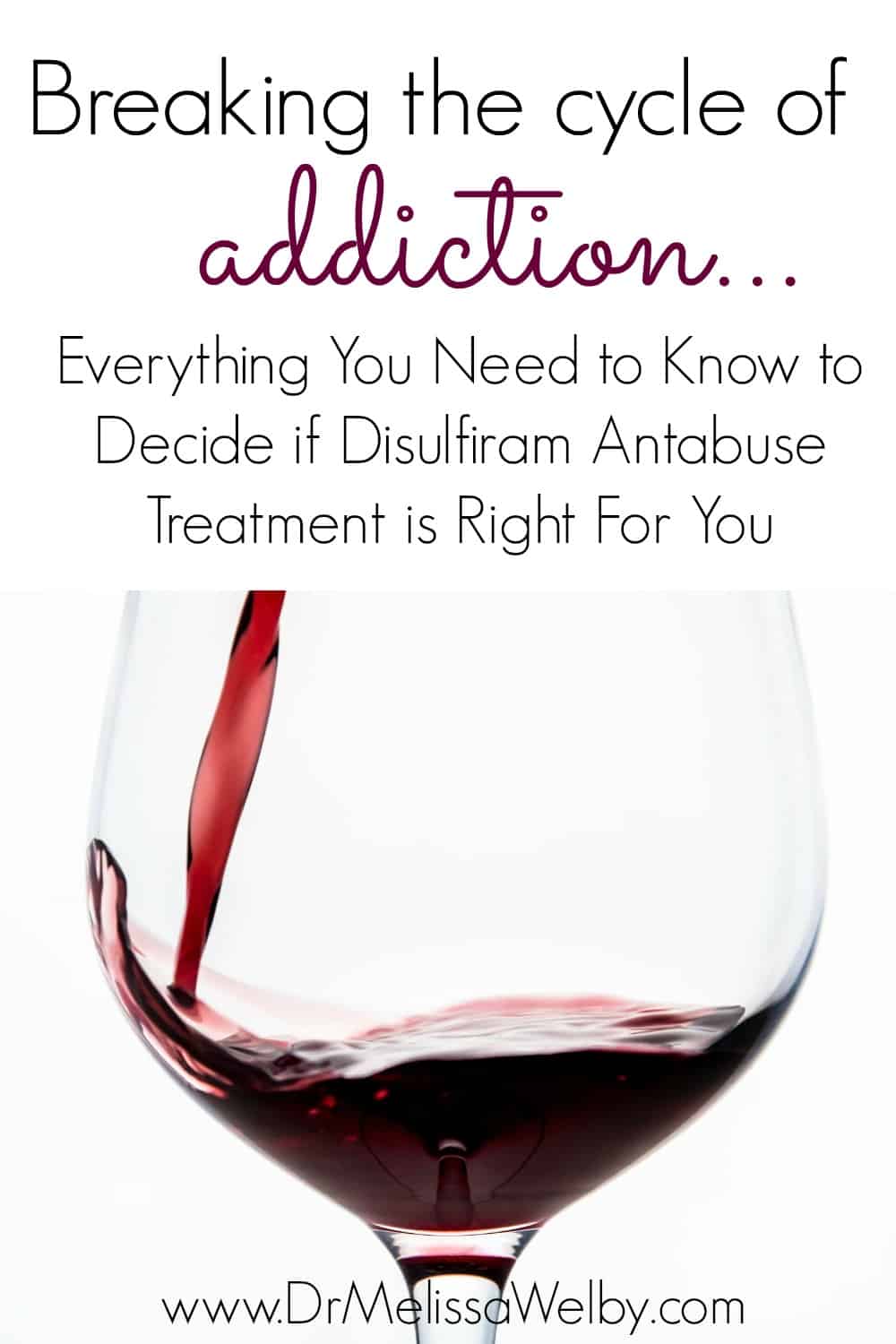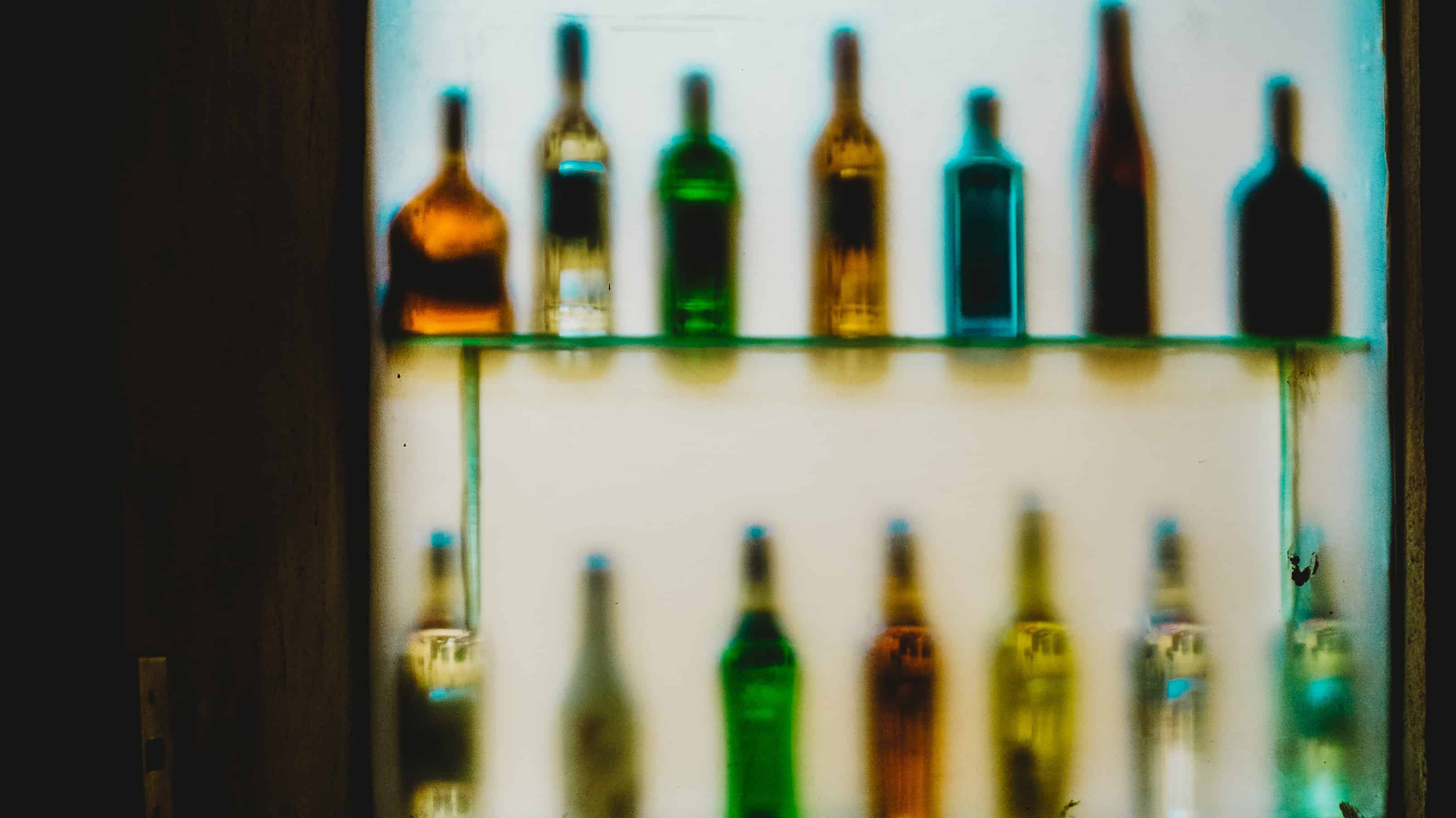Antabuse (Disulfiram is the generic name) is a medication given to people who are struggling with alcohol addiction and need medication to support their efforts to abstain. Breaking the cycle of addiction is extremely difficult and sometimes a person needs to medically remove alcohol as an option in order to begin to recover. Disulfiram Antabuse treatment is not a cure for addiction. It discourages drinking due to the extremely unpleasant consequences (the disulfiram reaction) that happen when Antabuse and alcohol are combined. How does Antabuse work? In order to understand this, we need to take a look at how alcohol is metabolized. Antabuse interferes with this pathway and this is why you get sick if you drink alcohol while taking Antabuse.
Wondering if you have a drinking problem or at risk for withdrawal? Take a moment now to read these posts: Do you have a drinking problem? and Alcohol Dependence and Withdrawal: Are You at Risk?
Antabuse Treatment: How alcohol is broken down
Alcohol needs to be broken down into smaller parts in order to be excreted (cleared from the body). It needs chemicals (mostly supplied by the liver) to break it down. Here are the basics of how alcohol is metabolized and processed:
1st step to metabolize alcohol:
The first chemical needed in the process is called alcohol dehydrogenase. This is responsible for breaking alcohol into acetaldehyde. Acetaldehyde is a toxic metabolite and is responsible for many of the symptoms caused by a hangover.
High levels of acetaldehyde cause:
- Nausea,
- Vomiting,
- Flushing,
- Headache,
- Low blood pressure
Because of the unpleasant effects of high levels of acetaldehyde, it needs to be broken down further in order to feel well.
2nd Step:
The next chemical in the process is aldehyde dehydrogenase which is responsible for breaking down the acetaldehyde further into acetic acid, a harmless substance that can be excreted.
How Antabuse works: Why disulfiram Antabuse makes you feel sick if you drink alcohol
How does Antabuse work? Disulfiram blocks Step 2: the ability for aldehyde dehydrogenase to break down the acetaldehyde. This means acetaldehyde stays around in the system creating the unpleasant effects that happen with high acetaldehyde levels (listed above).
The physical effects that happen from the toxic acetaldehyde start within about 10 minutes of drinking alcohol and last for an unpleasant 1+ hours depending on the amount of alcohol consumed.
Antabuse and alcohol: What could happen during a Disulfiram reaction?
Here is a good summary of what can happen when disulfiram and alcohol are combined. This is called a disulfiram reaction:
Disulfiram plus alcohol, even small amounts, produce flushing, throbbing in head and neck, throbbing headache, respiratory difficulty, nausea, copious vomiting, sweating, thirst, chest pain, palpitation, dyspnea, hyperventilation, tachycardia, hypotension, syncope, marked uneasiness, weakness, vertigo, blurred vision, and confusion. In severe reactions there may be respiratory depression, cardiovascular collapse, arrhythmias, myocardial infarction, acute congestive heart failure, unconsciousness, convulsions, and death.
The intensity of the reaction varies with each individual, but is generally proportional to the amounts of disulfiram and alcohol ingested. Mild reactions may occur in the sensitive individual when the blood alcohol concentration is increased to as little as 5 to 10 mg per 100 mL. Symptoms are fully developed at 50 mg per 100 mL, and unconsciousness usually results when the blood alcohol level reaches 125 to 150 mg.
How long does Disulfiram Antabuse stay in the body?
Antabuse is quite long-acting (slow to be cleared from the body) and a reaction may occur up to 2 weeks from the last dose of the medication!
Until it is fully cleared a person will get sick if they drink alcohol and I highly recommend not experimenting to see if you can drink sooner. I have heard stories of patients who are able to drink after 4 days but I have also heard stories of patients who have tried this and have been sicker from the disulfiram reaction than they ever were in their life.
Of course, the amount of time necessary until a person can “safely” drink again does not address the issue of someone struggling with addiction resuming drinking. We all know there are adverse effects that happen with addiction too…
Potential side-effects of Antabuse:
It is important to know this medication cannot be started within 12 hours of consuming an alcoholic beverage. Many of the below-listed side effects are more common in the first 2 weeks of therapy and then disappear. These can also be minimized by lowering the dose if necessary.
Side effects include:
- skin rash,
- acne,
- headache,
- drowsiness or tiredness,
- impotence,
- metallic taste or garlic-like taste in the mouth,
- weakness,
- loss of appetite,
- upset stomach and vomiting,
- yellowness of the skin or eyes,
- dark urine,
- rare liver inflammation or failure.
Antabuse treatment: It is an option to aid in recovery from alcohol addiction
Disulfiram Antabuse is not a cure-all for alcohol addiction but it can be a life-saving intervention that, when used along with psycho-social supports, helps support a person that is struggling to achieve abstinence from alcohol.
Do you know anyone that has successfully used Disulfiram Antabuse in their recovery? Have you, or anyone you know, experienced the adverse reaction of combining Antabuse and alcohol? What happened?
Please comment with any words of wisdom for people that are wondering if Disulfiram Antabuse treatment is right for them.
To read more about addiction check out these posts:
Need help quitting Juul? Learn more about treating Juul addiction.
There is a drug called Lean in school. Have you heard of it?
7 Alternatives to AA in Recovery from Addiction
We Can Help Prevent Prescription Medication Abuse and Drug Diversion
Naloxone: The antidote for opiate overdose
Don't miss another post!

Subscribe to get our latest content by email.









First off, this is a well written article ❤️. Taking Antabuse was my last resort because I knew deep down if I went to the AA for help I would try to cut back but would soon slip back to my bad habits. So happy I found ‘Nltrx247’ in Google and got treatment so soon. ? I have been taking Antabuse for two weeks and have found that I don’t even want a drink, my life seems much brighter now and full of hope. There is light at the end of the tunnel and it gets brighter every day.
I’m so glad you have found it helpful!